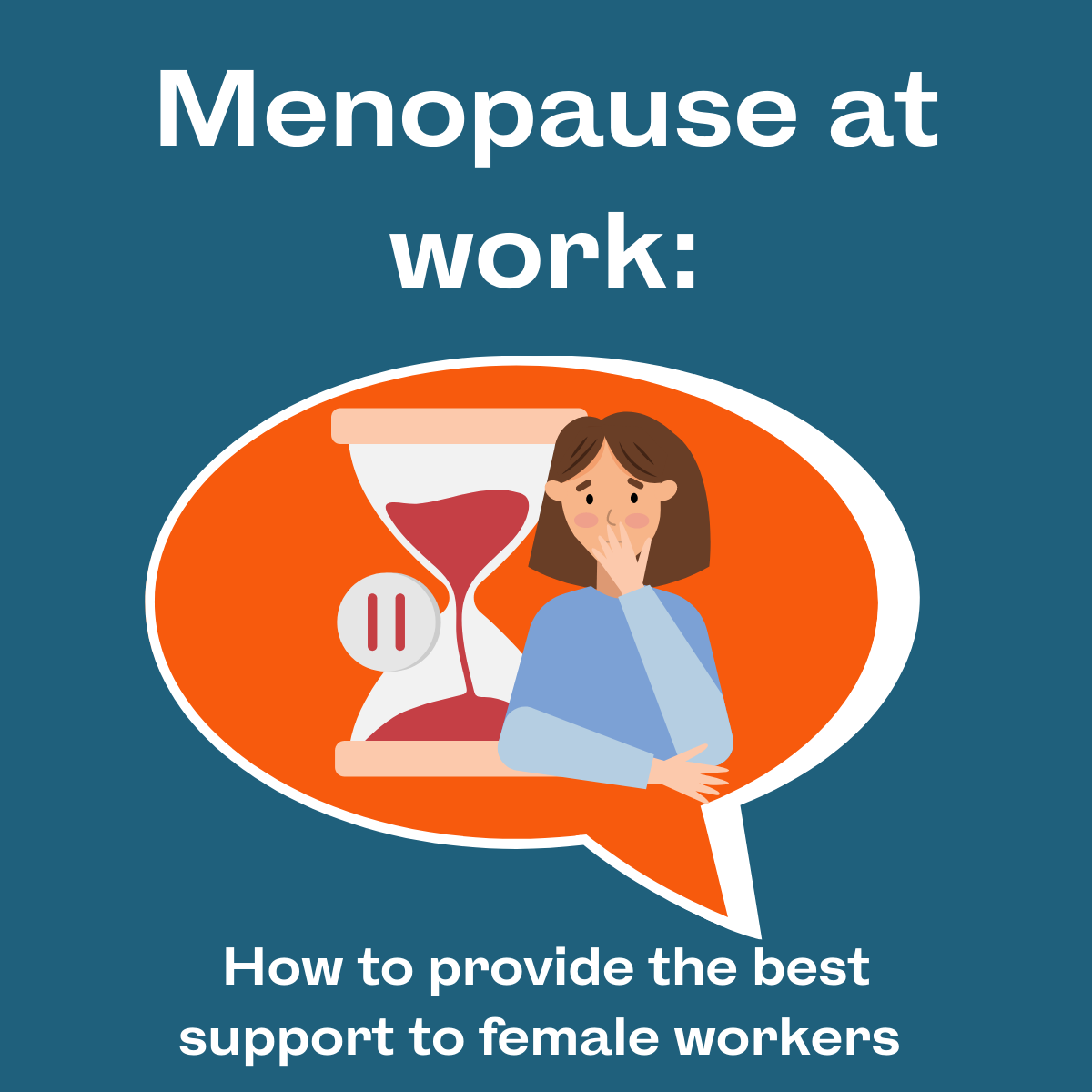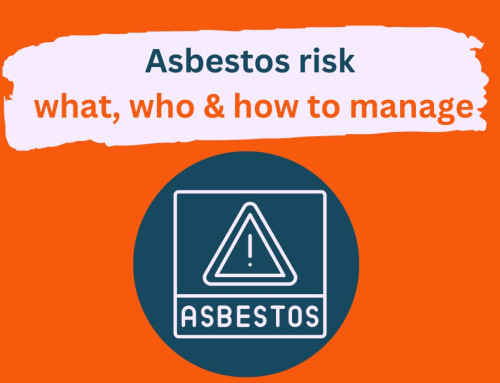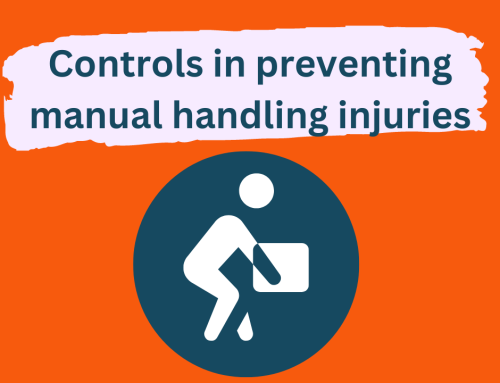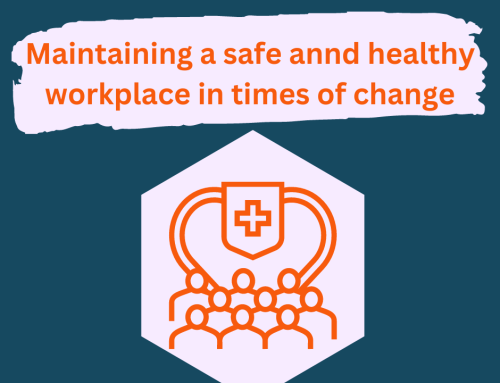This blog was developed from NIG Risk Assist to inform and encourage organisations to support menopausal workers at work. As detailed below, menopause can impact an individuals’ mental and physical health so it is important to be understanding and supportive.
Use this blog to educate and train team members in your organisation of menopause and its impacts to the individual.
____________
Menopausal employees may face difficulties going about their daily lives if they experience any of the normal symptoms, which can throw off routines and impair their ability to function in their jobs. Recent studies have therefore discovered that, both during and before the perimenopause:
- One in ten women will quit their perfectly decent professions due to symptoms like “brain fog,” exhaustion, and anxiety.
- One in four women will intentionally attempt to be demoted from their position rather than accept promotions.
The menopause may significantly affect their ability to work and productivity, which may have an effect on your company’s profitability.
The Menopause Explained
Menopause transition can be a problem for workers to a certain level, and research has been done to determine the nature and scope of the issue at work.
A woman experiences menopause on average around age 51.
It may occur earlier than this spontaneously, as a result of surgery or illness, or both. Years before menopause, in the perimenopause stage, symptoms may appear. One in twenty women are thought to be at risk of experiencing an early menopause, and about two million women over the age of 50 struggle at work as a result of their menopause symptoms.
Menopause alters oestrogen levels, which although it is not a disease, results in sporadic symptoms during this time. Different menopausal symptoms, which can be either physical or psychological and range widely in severity, affect every woman in a unique way. While some women experience little to no symptoms during the menopause, it is predicted that 1 in 4 women will experience some degree of symptoms.
Though it might be difficult for women to go about their everyday lives, especially at work, when they are suffering any of the normal symptoms, it can also make them lose faith in their capacity to perform their jobs.
What are the symptoms?
Many different physical and psychological symptoms of the menopause might continue for years. Although most women suffer symptoms, each one is unique. The severity and fluctuation of symptoms are both possible.
The most typical symptoms of the menopause include:
- Difficulty sleeping and night sweats
- Feeling tired and lack of energy
- Mood swings
- Feeling anxious and panic attacks
- Hot flushes
- Struggling to remember things, concentrate and focus (Brain fog)
- Irregular periods which can become heavier
- Aches and pains including muscle joint and stiffness
- Urinary problems
- Headaches including migraines
- Weight gain
- Palpitations (heartbeats that become more noticeable)
- Skin irritation
- Dry eyes
Brain Fog: Davina McCall has made menopause a media topic with her programme, Sex Mind and the Menopause, which revealed that “brain fog” is a result of the menopause’s dropping oestrogen levels. This can feel comparable to lack of sleep or stress and is reported as a lack of attention and unexpected forgetfulness.
Women who experience this often feel insecure and doubt their talents, which may be so upsetting for workers that some have thought about quitting their jobs.
Providing support for Women Female Workers
Recognizing the problems The fastest-growing group in the workforce is women, particularly those over 50. In order to keep all of the exceptional expertise and knowledge these women can give, it makes sense to understand how to promote and encourage their personal and professional growth inside your organisation.
For a variety of reasons, many women do not now discuss their menopausal symptoms at work. They may worry about their job security or possibilities for promotion because they think their symptoms might not be taken seriously or that they might not be able to perform their work. Managers must make sure that anyone exhibiting menopausal symptoms receives the same compassion and support as if they were dealing with any other medical condition.
Women are less likely to be embarrassed to mention how the menopause is affecting their health and their employment the more aware a line manager is about the variety of menopausal symptoms. The majority of women would rather be asked how they are feeling than ignored or told there is nothing wrong.
Employers are required to minimise, diminish, or eliminate threats to workers’ health and safety at work. This includes ensuring that the workplace does not exacerbate menopausal symptoms and putting procedures in place to assist women in managing their symptoms so they can perform their jobs.
Practical Support: Employers should assess general health and safety risks with regards to perimenopause and menopause, this should include:
● The temperature and ventilation in the workplace – wherever possible enabling individuals to control the temperature – possibly providing a portable fan if required
● Suitable rest facilities, toilet breaks and access to cold drinking water
● The materials used in any uniform or corporate clothing and consider adapting to improve comfort.
Promoting Greater Understanding
The potentially devastating loss to the business because of the Menopause can readily be avoided with some simple workplace training for employees and managers to improve understanding and support.
You can become a Menopause Friendly workplace by:
- Providing training for line managers
- Implementing reasonable adjustments to work stations or environment
- Offering flexibility (where possible) to keep staff feeling safe and valued at work
- Providing education for all on this topic which impacts all of us – whether personally, through a colleague or family member
Menopause and the Law
Despite the fact that the menopause and perimenopause are not specifically covered by the Equality Act 2010, treating a worker unfairly because of it may constitute age, sex, and/or disability discrimination. Additionally, an employer is obligated to protect the health, safety, and welfare of their staff members at work under the Health and Safety at Work Act of 1974.
Employers must also be aware that, depending on the context, making unpleasant remarks, jokes, banter, or making fun of a woman’s symptoms may constitute harassment or sexual harassment.
A legal firm has called for greater awareness and support for employees who are going through menopause as the number of tribunal cases in which employees are alleging discrimination connected to it is increasing.
Based on the rate of growth, it was expected that 20 menopause-related cases will be heard in court this year.
Policies
Businesses should think about implementing a menopausal policy together with training to increase managers’ understanding of the symptoms and modifications that can be made to help women during this transitional period. However, existing insurance like sickness or flexible working will cover menopause for those businesses lacking menopausal-specific policies.
The signs of menopause can change, therefore being adaptable is advised. Employers can reduce the likelihood of conflicts and claims, create a supportive workplace, and keep a diverse staff by proactively addressing the concerns.
For more information, see Menopause at Work in the HR A-Z Guidance. This includes a document template for a Menopause Policy and links to the Government research, support groups such as The British Menopause Society and ACAS’s “Menopause at Work” support guide on their site.
For menopause training, see Miss Menopause founded by Sharon MacArthur to receive educational and useful services.
____________
Talbot Jones Ltd is a family-run Chartered Insurance Broker specialising in Third Sector and Professional risks. Get in touch for free insurance advice, review or quotation.
Talbot Jones Ltd incorporates March Insurance Services, a Chartered Insurance Broker specialising in Agricultural and Hospitality Risks.





